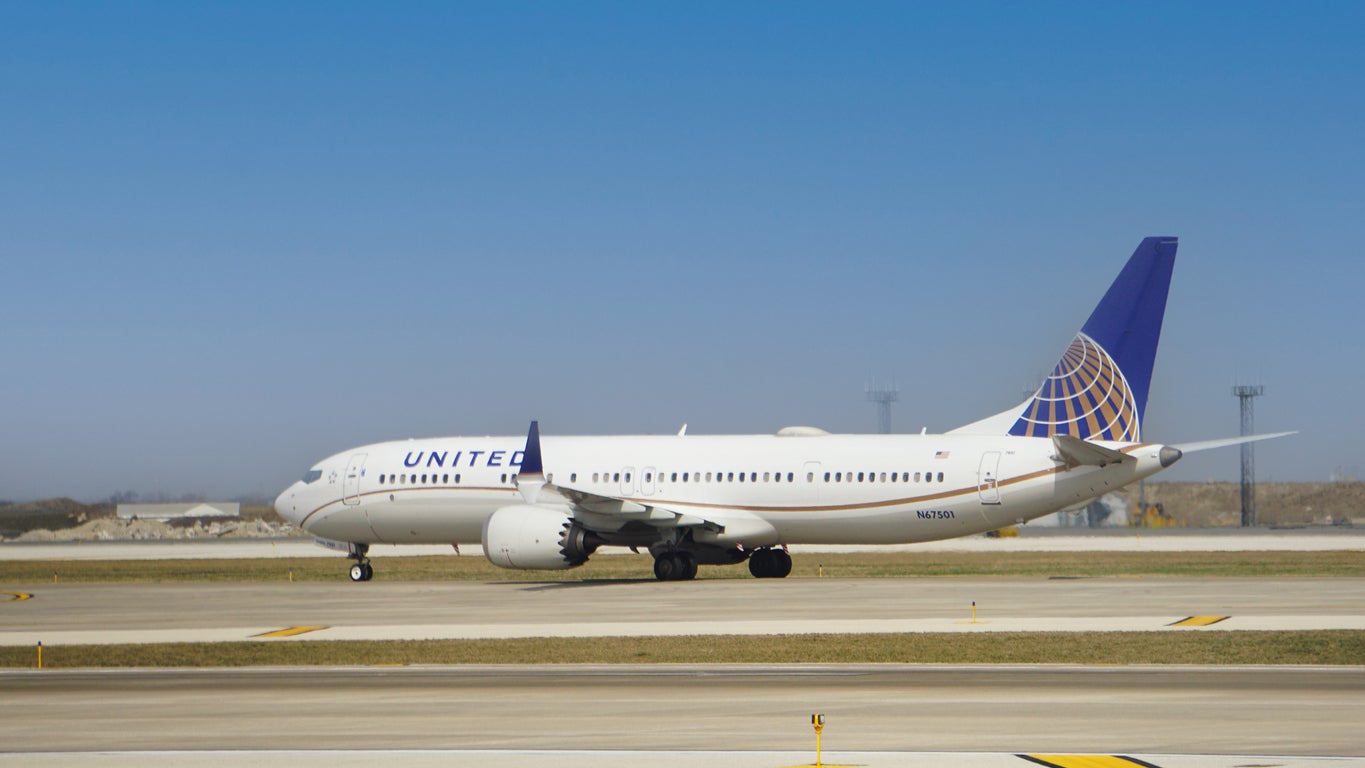United trials first flight with one engine running on sustainable aviation fuel
Airline criticised for presenting the flight as running on ‘100 per cent’ SAF

Your support helps us to tell the story
From reproductive rights to climate change to Big Tech, The Independent is on the ground when the story is developing. Whether it's investigating the financials of Elon Musk's pro-Trump PAC or producing our latest documentary, 'The A Word', which shines a light on the American women fighting for reproductive rights, we know how important it is to parse out the facts from the messaging.
At such a critical moment in US history, we need reporters on the ground. Your donation allows us to keep sending journalists to speak to both sides of the story.
The Independent is trusted by Americans across the entire political spectrum. And unlike many other quality news outlets, we choose not to lock Americans out of our reporting and analysis with paywalls. We believe quality journalism should be available to everyone, paid for by those who can afford it.
Your support makes all the difference.United Airlines has become the world’s first airline to operate a passenger flight with one engine running on 100 per cent sustainable aviation fuel (SAF).
SAFs are produced with materials other than crude oil, and produce up to 80 per cent fewer carbon emissions - although this reduction is all in the production stage, with this type of fuel emitting at least as much CO2 inflight as traditional kerosene.
The Boeing 737 MAX 8 flew from Chicago to Washington DC on Wednesday at 1pm local time, carrying 100 passengers including United’s CEO Scott Kirby.
Under Federal Aviation Authority (FAA) rules, US airlines cannot fly using SAF alone, so for Wednesday’s flight, United gained special permission to fly with 500 gallons of SAF alone in one engine, and the same amount of traditional jet fuel in the other, in a bid to prove there is no operational difference.
As this detail emerged, critics were quick to accuse the carrier of greenwashing after it tweeted an upbeat thread about the “historic” flight running on “100 per cent SAF” and calling the flight “a turning point in the industry’s effort to combat climate change”.
“It helps nobody when airlines lie about sustainability,” tweeted independent aviation journalist John Walton.
“This ‘passenger’ flight contains non-revenue passengers only.
“Only one engine is using 100 per cent sustainable fuel, and I didn’t go to school for math, but I’m pretty sure that adds up to 50 cent.”
A social media representative for the airline acknowledged the misleading wording on Twitter, writing: “One engine is running with 100 per cent SAF (versus blended), while the other is running traditional jet fuel as is currently allowed by the FAA (50 per cent total).”
But the Twitter spokesperson insisted the one-engine of SAF was a win for sustainable aviation, writing: “This flight is historic because it proves that there is no operational difference when an engine runs on 100 per cent SAF (versus that blend).”
The SAF that United used was supplied by World Energy, which makes fuel from agricultural waste, waste from managed forests, and debris destined for landfill. It is a “drop-in fuel”, meaning it can be added to aircraft with no need for modifications to engine fuel systems or airline infrastructure.
SAF is a hot topic in the travel industry, but many think it doesn’t go far enough in addressing travel and particularly aviation’s impact on climate change.
In 2016, United became the world’s first airline to consistently use SAF in its regular operations, mixing it with conventional jet fuel to meet US guidelines.
At last month’s COP26 sustainability event, a coalition of world leaders agreed to “promote the development and deployment, through international and national measures, of sustainable aviation fuels that reduce life-cycle emissions and contribute to the achievement of the UN Sustainable Development Goals (SDGs).”
In September, BA ran its first flight using 35 per cent SAF mixed with traditional jet fuel, using its energy efficient Airbus A320neo aircraft.
Meanwhile, in May, BA’s parent company International Airlines Group (IAG), became the first European airline group to commit to powering 10 per cent of its flights with sustainable aviation fuel by 2030.
However, critics of SAF point out that, while airlines claim the fuels reduce CO2 emissions by up to 80 per cent compared with fossil fuels, they emit at least as much CO2 as kerosene inflight, as well as the same harmful non-CO2 emissions, which also have a significant warming effect.
Join our commenting forum
Join thought-provoking conversations, follow other Independent readers and see their replies
Comments